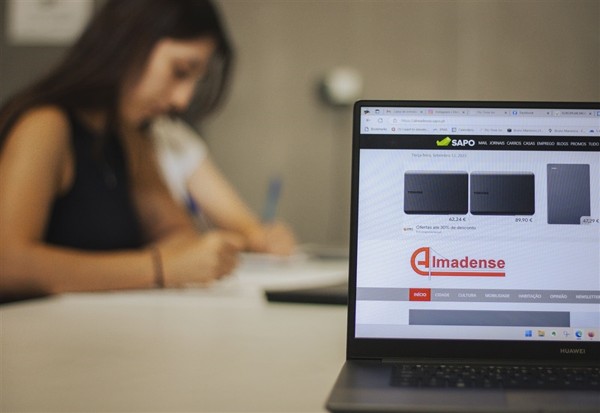On the second day of IPI’s mission to Finland, the team talked with female journalists who have been heavily targeted with online harassment. One of them was MustRead.fi journalist Linda Pelkonen, who was threatened on social media for her work in 2015. In February, a court convicted two of the three men involved. The pioneering sentence is expected to set a precedent in Finland for dealing with cases of online attacks on journalists.
IPI also visited the newspaper Uusi Suomi, where Pelkonen worked at the time of the attacks. We met Editor-in Chief Markku Huusko and Social Media Manager Leo Lemmetty to talk about how they supported Pelkonen throughout the entire process, and what they have learned from her case that might help others in the newsrooms elsewhere.
Finally, as part of the OSCE RFoM SOFJO project, IPI organized a focus group with prominent female journalists, among them Johanna Vehkoo, to explore what their coping mechanisms are as well as what measures they believe should be implemented to prevent and protect journalists from gender-based attacks.
Here are some of the overall lessons learned from the day:
– Above all, authorities and the rest of the society should acknowledge the issue and treat it as a serious problem for not only personal health and safety, but also for freedom of speech and for pluralistic media sphere and thus for democracy as well.
– The aspect of misogyny or gender-based hate in online violence should be recognized and added to legislation as an aggravating circumstance. More cases should be brought to the police, and authorities should take the cases seriously to avoid normalizing online violence against people in public professions.
– More information is needed on the actual harassers. Online abusers and the societal structures that enable online violence should be researched and studied to better understand the reasons behind the attacks. This would further bring attention to the problem as a phenomenon and structural and institutional issue rather than treating the cases as single, separate incidents.
– The ability of editors-in-chiefs to take action in online harassment cases varies. A protocol is needed so that supervisors can provide sufficient psychosocial support for journalists. Some important measures would be: acknowledging the seriousness of the mental distress these attacks inflict on journalists; offering the possibility of health care and/or asking what kind of support the journalist would want; and communicating clearly that the organization stands behind the journalist through the ordeal. The worst ways to cope with online harassment are doubting the journalist and questioning whether he or she actually “deserves” the attacks, belittling the emotional burden and leaving him or her to deal with the harassment alone.
– Support from colleagues is of utmost importance when coping with online abuse and harassment. Other ways of coping include humour, treating online harassment as a larger phenomenon rather than personal abuse, taking distance to the whole issue, avoiding certain topics, blocking or deleting social media channels and changing online behaviour, naming and shaming, and contacting or facing the harassers or their family members.
– Editors-in-chiefs, journalists and other employees of media organizations should be well educated in the phenomenon of online attacks. Online abusers follow similar tactics and patterns to cause damage to their targets. Knowing the usual timeline and the ways in which these attacks are created and coordinated would prepare the journalist for such cases and give reassurance that what is happening is in no way unprecedented. This kind of training should be provided both in the educational system as well as in the workplaces.
Today, June 6, IPI will be visiting several newsrooms in Turku, a city two hours away from Finland’s capital, to explore how media organizations cope with online violence against their journalists when living in a smaller community.
This fact-finding mission to Finland is the second of six missions IPI will be conducting in Europe to gather best practices to tackle online harassment in newsrooms as part of its OnTheLine project.



